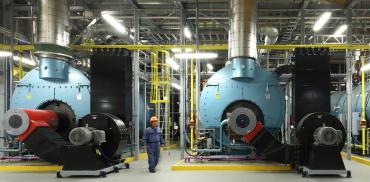Bold ambition. Collective action.
The UBC Climate Action Plan 2030 (CAP 2030) puts the university on an accelerated path to net zero emissions for buildings and energy supply as well as to significantly reduce greenhouse gas emissions for extended impact areas over the next 15 years. On this page, learn more about the targets, actions and strategies for CAP 2030 and what you can do to take action now.
Looking for a quick overview of CAP 2030? Take a look at the CAP 2030 Plan at a Glance. The full plan is also available for download.
Recognizing Climate Justice
UBC recognizes that the ability to partake in sustainable actions may be constrained by lack of privilege and inequality. Engaging principles of climate justice are particularly relevant when developing climate actions related to food systems, commuting and business air travel. Identification and removal of barriers to choosing alternatives will be integral to shifting cultural norms, while ensuring an equitable approach.
Targets
2030
85% reduction in campus operations emissions
This reduction would significantly exceed the 45% Paris Agreement emissions reduction target by 2030 to keep global warming to 1.5°C. Reducing emissions by 85% translates to eliminating virtually all conventional fossil fuel use from campus operations.
2030
45% collective reduction in emissions from extended impact sources
This encompasses commuting, business air travel, food, waste and materials, and embodied carbon. This will keep the university’s reductions in alignment with the Paris Agreement’s 1.5°C target.
2035
Achieve a 100% reduction in operational greenhouse gas emissions
15 years ahead of UBC’s original net zero target (2050).
Targets, Strategies and Actions by Focus Area
The following is a summary of key actions identified in the CAP 2030 working group process, broken down across all focus areas.






